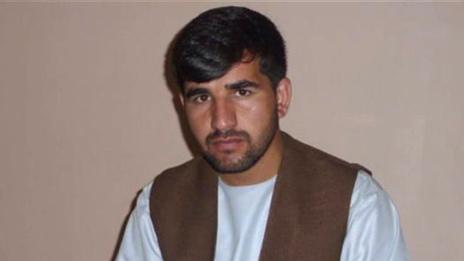Afghanistan attack: Remembering BBC's talented Ahmad Shah
- Published
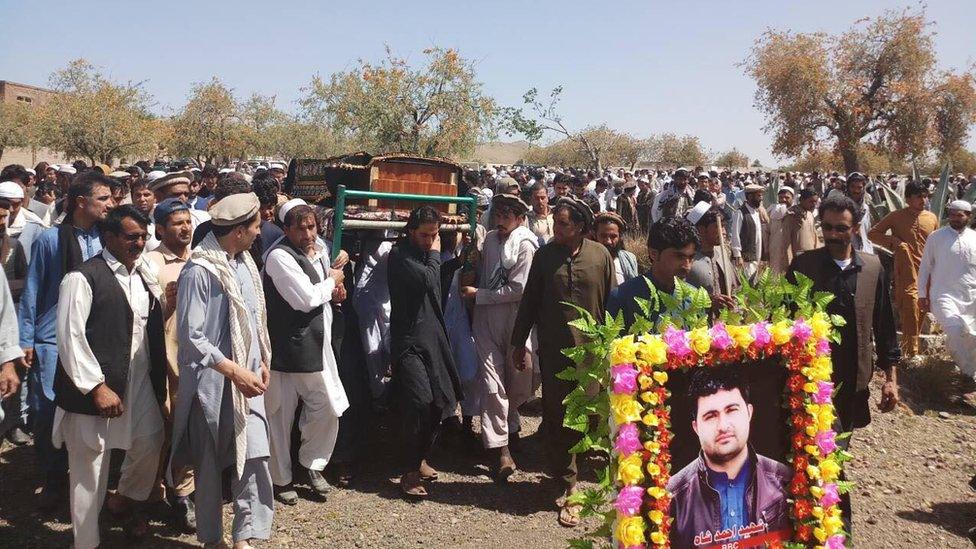
Ahmad Shah, who has been killed aged 29, was a very unassuming man - but his work as a BBC reporter in Afghanistan was far from modest.
He will be remembered as a versatile and energetic reporter with a wide range of interests and always full of ideas for new stories.
His sense of journalism was sharpening and improving every day.
We found him quiet, modest and clever - someone who was well-informed, always willing to accept a challenge and keen to go the extra mile.
Ahmad joined the BBC from local radio in early 2017 with a brief to cover his home province of Khost, in south-eastern Afghanistan, but he branched out to cover the neighbouring provinces of Paktia and Paktika as well for television, radio and online.
He first started working for the BBC as a freelance contributor before being recruited as a full time reporter by BBC Pashto last year.
For Ahmad, who graduated with a BA in journalism from Khost's Shaikh Zayed University six years ago, his work was not just a profession, it was his passion too.
Ahmad had a really good eye for human stories.
He charted the growing popularity of reading, poetry and learning English among young people in Khost - especially young women.
Many remember his story about the amazing museum in Khost where 400 artefacts are crammed into a tiny 20 sq m space.
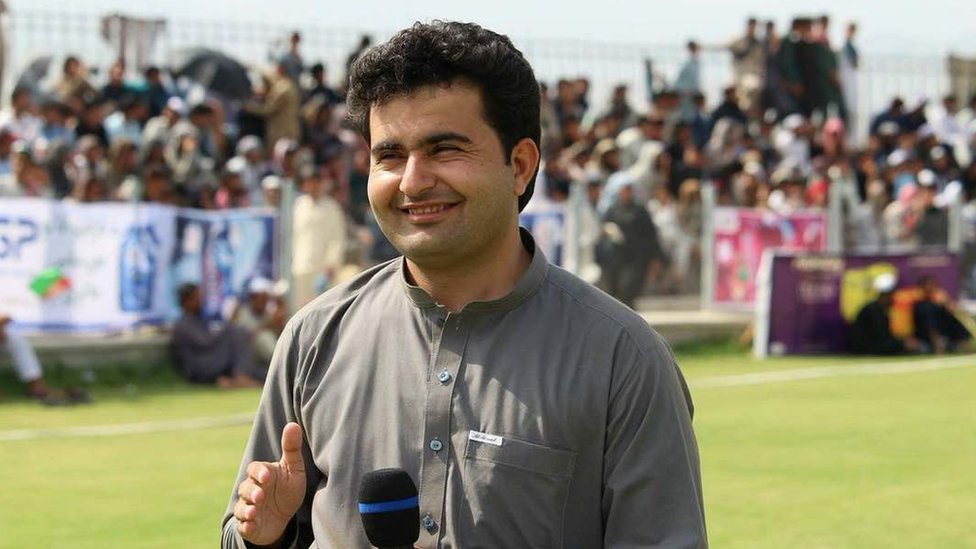
The BBC said Ahmad Shah was a respected and popular journalist
And many - including the local governor - were also touched by his feature on Meena Kalai ("Love Village") - home to Khost's once-thriving Hindu and Sikh community and now a source of great nostalgia for the few old people still alive to remember it.
It's always a challenge for the BBC to find interviewees in remote parts of Afghanistan, but thanks to Ahmad voices from his part of the country became a regular feature in our output.
He made a particular effort to ensure women's voices were heard, and conducted interviews not just in Pashto, which most people speak in the south and east, but also in Afghanistan's other main language, Dari.
It completely transformed the BBC Dari radio broadcasts to Afghanistan.
A native Pashto speaker, Ahmad even started improving his Dari this year so that he could broadcast in both languages. He was also learning English.
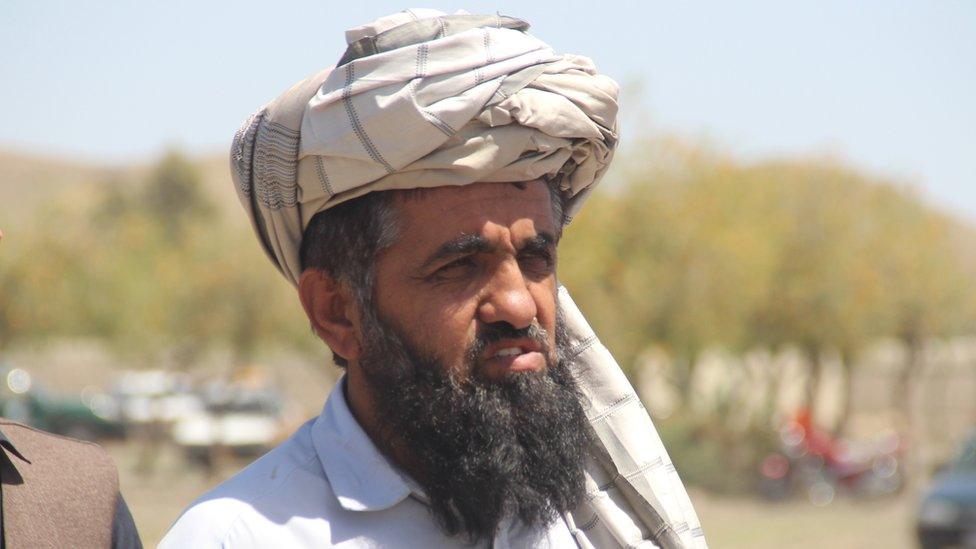
Ahmad Shah's father, Merwais, says he had not received any threats
Ahmad Shah was born in 1989, the year when the Soviet Union withdrew its forces from Afghanistan after a 10-year occupation.
So his father named him after Ahmad Shah Durrani, an 18th Century king and the founder of modern Afghanistan.
Ahmad was the eldest of six children - he leaves behind four sisters and a teenage brother, as well as his parents and his wife-to-be.
They were engaged to be married a year ago and his family was planning the wedding for later this year.
Ahmad's friend and local journalist, Faridullah Zaher, says the first thing his father Merwais said after his son died was: "I wish he had not got engaged".
Zaher says Ahmad told him a few weeks ago that he had saved about $4,000 and needed to save a bit more to cover the wedding expenses.
Ahmad Shah lived in Kotkai village, about two kilometres from Khost city.
It was mid-afternoon on Monday when he was attacked cycling home on the main road. He died of his injuries in hospital.
Local security officials say the attack was carried out by two gunmen riding a motorbike.
According to his father, Ahmad Shah had not received any work-related threat or threatening calls, and the family is involved in no feuds.
The Taliban denied any involvement in his killing, saying "he was a professional journalist and we are saddened" by his death.
Ahmad Shah is the fifth BBC staff member to have been killed in Afghanistan since the country's devastating civil war in the 1990s. The others are:
Mirwais Jalil, 25, who was attacked by four gunmen in 1994
Abdul Samad Rohani who was shot dead in Helmand Province in 2008
Ahmed Omed Khpulwak, 25, who was mistakenly killed by Nato-led forces in 2011
Mohammed Nazir, a BBC driver who was killed in a bomb attack in 2017
Dozens of private radio stations and TV channels, as well as hundreds of publications, have been launched in Afghanistan in recent years.
But the country remains one of the most dangerous places for journalists, external in the world.
The day Ahmad Shah was shot dead, 30 April, was the deadliest for the media in the country's history.
Nine members of the press had been killed earlier in the day as they gathered to cover a suicide attack in Kabul.
The second Kabul explosion targeted those at the scene of the first
Faridullah Zaher says Ahmad encouraged friends and colleagues to remain neutral.
"If you want to remain safe, don't write controversial things on Facebook," he told a gathering of journalists in Khost a few days ago.
At the end of last year Ahmad played a key role in a BBC project to chart the Taliban presence across Afghanistan.
He provided detailed reports from every district in Khost, Paktia and Paktika provinces, and even discovered a district where, unknown to all of us, neither the government nor the Taliban were in control - local villagers were running things for themselves.
On a visit to the BBC Kabul bureau, colleagues remember him giving a fascinating presentation on life and the security situation in Khost.
Although the province has been relatively quiet, there have been clashes recently along the border with neighbouring Pakistan, and Ahmad travelled to the area to report on what was going on.
Two days ago he wrote to his editor in London with some new story ideas.
He was planning to do a few pieces, including education for girls, before the arrival of Ramadan as it would be harder to work long hours in soaring temperatures.
Ahmad's last television story was about a man in Khost who always dresses in the same colours from head to toe to signal the need for unity across all ethnic and religious divides in Afghanistan.
It was quirky, full of hope, humour and humanity and entirely typical of a young man so full of promise, whose life was so cruelly cut short this week.
Ahmad, like other journalists working in conflict zones, was the eyes and ears of the people covering stories - but he didn't know he himself would one day become the story.
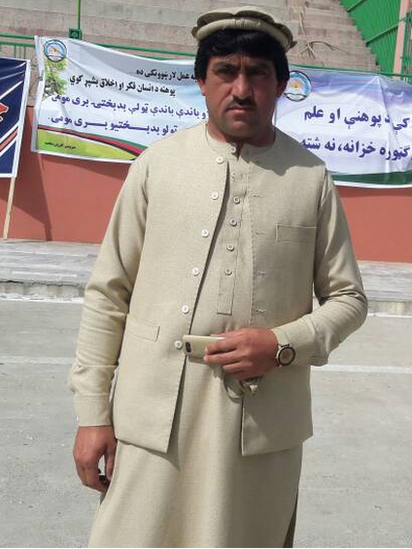
Rasool Khan was to feature in Ahmad Shah's last television story
- Published30 April 2018
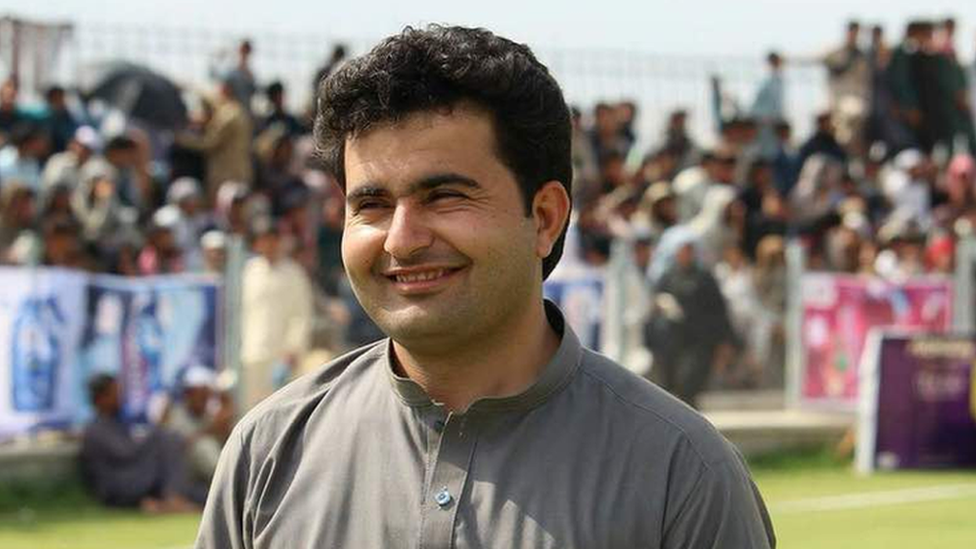
- Published30 April 2018
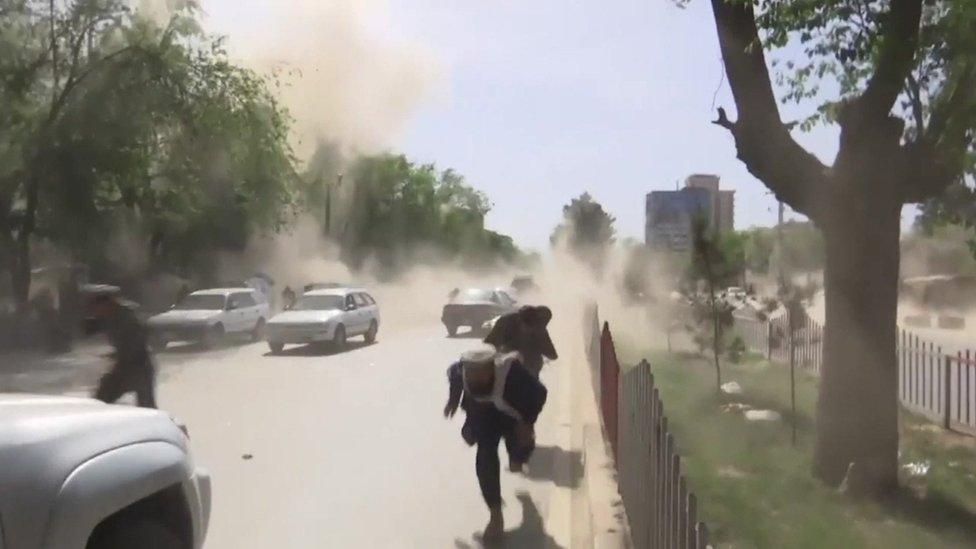
- Published22 April 2018
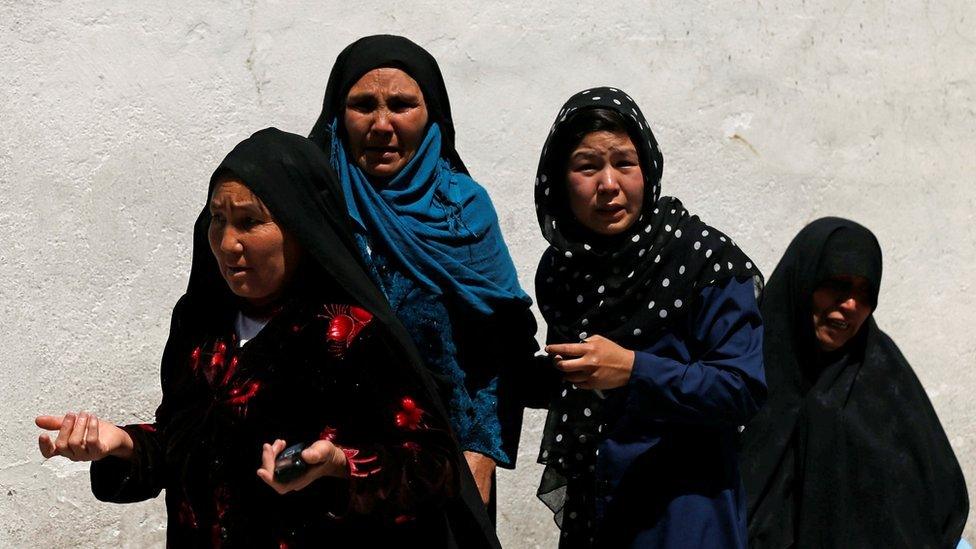
- Published31 January 2018
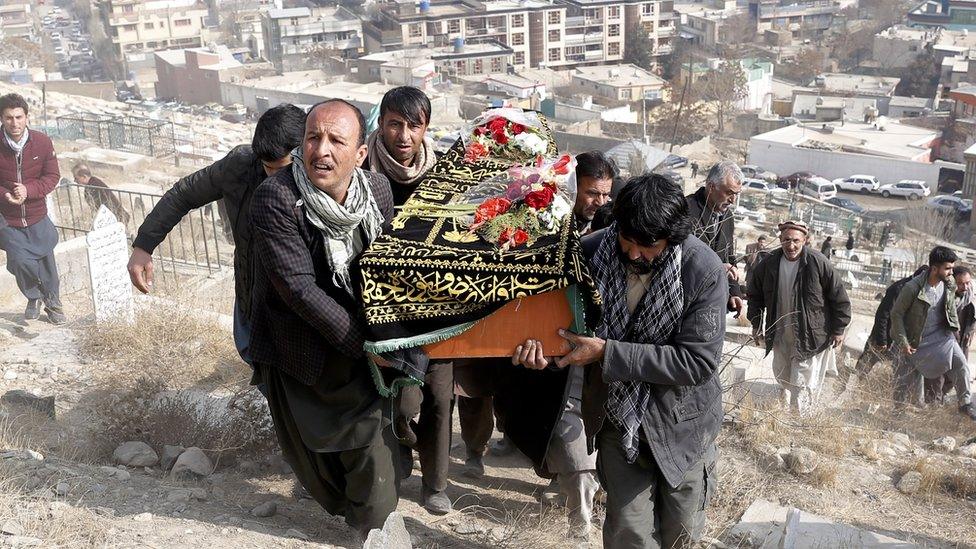
- Published28 July 2011
